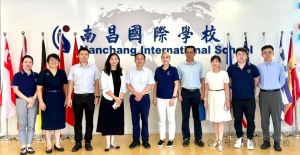2025年9月12日,江西省人民对外友好协会(以下简称“省友协”)专职副会长涂安波一行莅临南昌国际学校,开展调研指导工作。陪同调研的有省友协联络部部长王军、友协办副主任周谊军等。学校领导及相关部门负责人热情接待并陪同调研。
On September 12, 2025, a delegation led by Tu Anbo, Full-time Vice President of the Jiangxi Provincial People’s Association for Friendship with Foreign Countries (hereafter referred to as the “Jiangxi Friendship Association”), visited Nanchang International School for a research and guidance session. The delegation was accompanied by Wang Jun, Director of the Liaison Department, and Zhou Yijun, Deputy Director of the Friendship Association Office. The school leadership, along with relevant department heads, warmly welcomed the delegation and provided support throughout the visit.
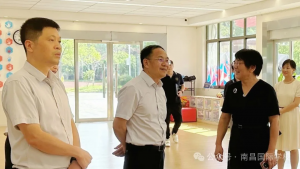
Vice President Tu Anbo and the delegation, accompanied by school leaders, visited the teaching areas and multifunctional specialized classrooms. Executive Principal Guo Aixiang first introduced the school’s history, educational philosophy. In the teaching areas, IB PYP Coordinator Sarah provided a detailed explanation of the teaching environment and curriculum design. Students confidently demonstrated their stage-based learning outcomes in fluent English and raised a series of insightful questions. The depth of their thinking and their enthusiasm for learning earned high praise from the delegation.
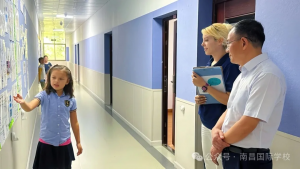
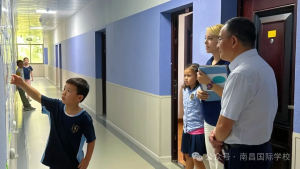
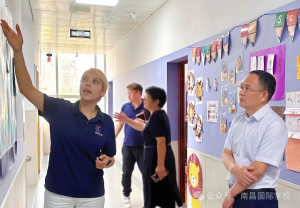
Subsequently, both parties discussed in the third-floor conference room. Li Yan, Vice President of Singapore WES Group and Principal of Nanchang International School, on behalf of the school, extended a warm welcome to the research team for their visit and delivered a special presentation on the school’s educational achievements, international cooperation, and future development plans.
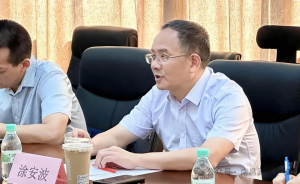
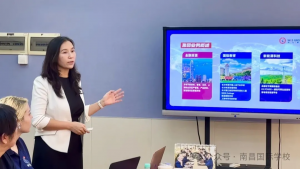
涂安波副会长表示,南昌国际学校成立以来,不断优化国际化办学,成绩值得肯定,希望学校进一步融入全省开放发展大局,发挥优质教育及涉外资源优势,助力江西在经贸、人文、科技等领域对外合作不断走深走实。
Vice President Tu Anbo noted with appreciation that since its establishment, Nanchang International School has continuously refined its international education standards, achieving commendable results. He expressed hope that the school would further integrate into the broader context of the province’s open development, leveraging its high-quality educational resources and advantages in international engagement to facilitate deeper and more substantive foreign cooperation in economic, trade, cultural, scientific, and technological fields for Jiangxi.
